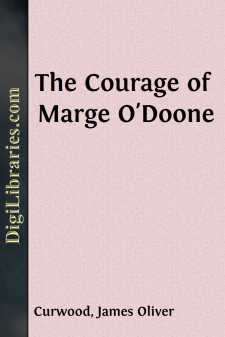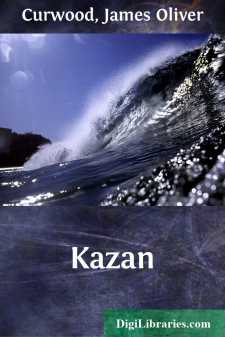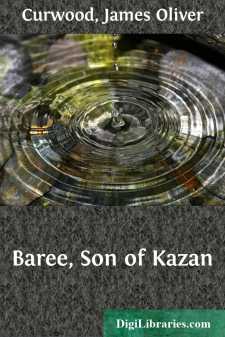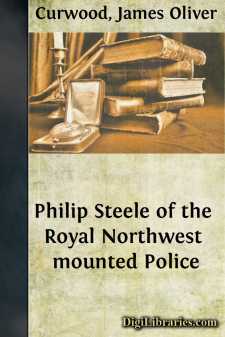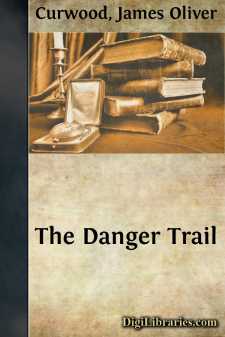Categories
- Antiques & Collectibles 13
- Architecture 36
- Art 48
- Bibles 22
- Biography & Autobiography 813
- Body, Mind & Spirit 142
- Business & Economics 28
- Children's Books 16
- Children's Fiction 13
- Computers 4
- Cooking 94
- Crafts & Hobbies 4
- Drama 346
- Education 46
- Family & Relationships 57
- Fiction 11829
- Games 19
- Gardening 17
- Health & Fitness 34
- History 1377
- House & Home 1
- Humor 147
- Juvenile Fiction 1873
- Juvenile Nonfiction 202
- Language Arts & Disciplines 88
- Law 16
- Literary Collections 686
- Literary Criticism 179
- Mathematics 13
- Medical 41
- Music 40
- Nature 179
- Non-Classifiable 1768
- Performing Arts 7
- Periodicals 1453
- Philosophy 64
- Photography 2
- Poetry 896
- Political Science 203
- Psychology 42
- Reference 154
- Religion 513
- Science 126
- Self-Help 84
- Social Science 81
- Sports & Recreation 34
- Study Aids 3
- Technology & Engineering 59
- Transportation 23
- Travel 463
- True Crime 29
The Alaskan
Description:
Excerpt
CHAPTER XIII
After that one calling of her name Alan's voice was dead, and he made no movement. He could not disbelieve. It was not a mental illusion or a temporary upsetting of his sanity. It was truth. The shock of it was rending every nerve in his body, even as he stood as if carved out of wood. And then a strange relaxation swept over him. Some force seemed to pass out of his flesh, and his arms hung limp. She was there, alive! He could see the whiteness leave her face and a flush of color come into it, and he heard a little cry as she jumped down from the log and came toward him. It had all happened in a few seconds, but it seemed a long time to Alan.
He saw nothing about her or beyond her. It was as if she were floating up to him out of the cold mists of the sea. And she stopped only a step away from him, when she saw more clearly what was in his face. It must have been something that startled her. Vaguely he realized this and made an effort to recover himself.
"You almost frightened me," she said. "We have been expecting you and watching for you, and I was out there a few minutes ago looking back over the tundra. The sun was in my eyes, and I didn't see you."
It seemed incredible that he should be hearing her voice, the same voice, unexcited, sweet, and thrilling, speaking as if she had seen him yesterday and with a certain reserved gladness was welcoming him again today. It was impossible for him to realize in these moments the immeasurable distance that lay between their viewpoints. He was simply Alan Holt--she was the dead risen to life. Many times in his grief he had visualized what he would do if some miracle could bring her back to him like this; he had thought of taking her in his arms and never letting her go. But now that the miracle had come to pass, and she was within his reach, he stood without moving, trying only to speak.
"You--Mary Standish!" he said at last. "I thought--"
He did not finish. It was not himself speaking. It was another individual within him, a detached individual trying to explain his lack of physical expression. He wanted to cry out his gladness, to shout with joy, yet the directing soul of action in him was stricken. She touched his arm hesitatingly.
"I didn't think you would care," she said. "I thought you wouldn't mind--if I came up here."
Care! The word was like an explosion setting things loose in his brain, and the touch of her hand sent a sweep of fire through him. He heard himself cry out, a strange, unhuman sort of cry, as he swept her to his breast. He held her close, crushing kisses upon her mouth, his fingers buried in her hair, her slender body almost broken in his arms. She was alive--she had come back to him--and he forgot everything in these blind moments but that great truth which was sweeping over him in a glorious inundation. Then, suddenly, he found that she was fighting him, struggling to free herself and putting her hands against his face in her efforts. She was so close that he seemed to see nothing but her eyes, and in them he did not see what he had dreamed of finding--but horror. It was a stab that went into his heart, and his arms relaxed. She staggered back, trembling and swaying a little as she got her breath, her face very white.
He had hurt her. The hurt was in her eyes, in the way she looked at him, as if he had become a menace from which she would run if he had not taken the strength from her. As she stood there, her parted lips showing the red of his kisses, her shining hair almost undone, he held out his hands mutely.
"You think--I came here for that?" she panted.
"No," he said. "Forgive me. I am sorry."
It was not anger that he saw in her face. It was, instead, a mingling of shock and physical hurt; a measurement of him now, as she looked at him, which recalled her to him as she had stood that night with her back against his cabin door. Yet he was not trying to piece things together. Even subconsciously that was impossible, for all life in him was centered in the one stupendous thought that she was not dead, but living, and he did not wonder why. There was no question in his mind as to the manner in which she had been saved from the sea. He felt a weakness in his limbs; he wanted to laugh, to cry out, to give himself up to strange inclinations for a moment or two, like a woman. Such was the shock of his happiness. It crept in a living fluid through his flesh. She saw it in the swift change of the rock-like color in his face, and his quicker breathing, and was a little amazed, but Alan was too completely possessed by the one great thing to discover the astonishment growing in her eyes.
"You are alive," he said, giving voice again to the one thought pounding in his brain. "Alive!"
It seemed to him that word wanted to utter itself an impossible number of times. Then the truth that was partly dawning came entirely to the girl.
"Mr. Holt, you did not receive my letter at Nome?" she asked.
"Your letter? At Nome?" He repeated the words, shaking his head. "No."
"And all this time--you have been thinking--I was dead?"
He nodded, because the thickness in his throat made it the easier form of speech.
"I wrote you there," she said. "I wrote the letter before I jumped into the sea. It went to Nome with Captain Rifle's ship."
"I didn't get it."
"You didn't get it?" There was wonderment in her voice, and then, if he had observed it, understanding.
"Then you didn't mean that just now? You didn't intend to do it? It was because you had blamed yourself for my death, and it was a great relief to find me alive. That was it, wasn't it?"
Stupidly he nodded again. "Yes, it was a great relief."
"You see, I had faith in you even when you wouldn't help me," she went on. "So much faith that I trusted you with my secret in the letter I wrote. To all the world but you I am dead--to Rossland, Captain Rifle, everyone. In my letter I told you I had arranged with the young Thlinkit Indian. He smuggled the canoe over the side just before I leaped in, and picked me up. I am a good swimmer. Then he paddled me ashore while the boats were making their search."
In a moment she had placed a gulf between them again, on the other side of which she stood unattainable. It was inconceivable that only a few moments ago he had crushed her in his arms. The knowledge that he had done this thing, and that she was looking at him now as if it had never happened, filled him with a smothering sense of humiliation. She made it impossible for him to speak about it, even to apologize more fully.
"Now I am here," she was saying in a quiet, possessive sort of way. "I didn't think of coming when I jumped into the sea. I made up my mind afterward. I think it was because I met a little man with red whiskers whom you once pointed out to me in the smoking salon on the Nome. And so--I am your guest, Mr. Holt."
There was not the slightest suspicion of apology in her voice as she smoothed back her hair where he had crumpled it. It was as if she belonged here, and had always belonged here, and was giving him permission to enter her domain. Shock was beginning to pass away from him, and he could feel his feet upon the earth once more. His spirit-visions of her as she had walked hand in hand with him during the past weeks, her soft eyes filled with love, faded away before the reality of Mary Standish in flesh and blood, her quiet mastery of things, her almost omniscient unapproachableness. He reached out his hands, but there was a different light in his eyes, and she placed her own in them confidently.
"It was like a bolt of lightning," he said, his voice free at last and trembling. "Day and night I have been thinking of you, dreaming of you, and cursing myself because I believed I had killed you. And now I find you alive. And here!"
She was so near that the hands he clasped lay against his breast. But reason had returned to him, and he saw the folly of dreams.
"It is difficult to believe. Out there I thought I was sick. Perhaps I am. But if I am not sick, and you are really you, I am glad. If I wake up and find I have imagined it all, as I imagined so many of the other things--"
He laughed, freeing her hands and looking into eyes shining half out of tears at him. But he did not finish. She drew away from him, with a lingering of her finger-tips on his arm, and the little heart-beat in her throat revealed itself clearly again as on that night in his cabin.
"I have been thinking of you back there, every hour, every step," he said, making a gesture toward the tundras over which he had come. "Then I heard the firecrackers and saw the flag. It is almost as if I had created you!"
A quick answer was on her lips, but she stopped it.
"And when I found you here, and you didn't fade away like a ghost, I thought something was wrong with my head. Something must have been wrong, I guess, or I wouldn't have done that. You see, it puzzled me that a ghost should be setting off firecrackers--and I suppose that was the first impulse I had of making sure you were real."
A voice came from the edge of the cottonwoods beyond them. It was a clear, wild voice with a sweet trill in it. "Maa-rie!" it called. "Maa-rie!"
"Supper," nodded the girl. "You are just in time. And then we are going home in the twilight."
It made his heart thump, that casual way in which she spoke of his place as home. She went ahead of him, with the sun glinting in the soft coils of her hair, and he picked up his rifle and followed, eyes and soul filled only with the beauty of her slim figure--a glory of life where for a long time he had fashioned a spirit of the dead. They came into an open, soft with grass and strewn with flowers, and in this open a man was kneeling beside a fire no larger than his two hands, and at his side, watching him, stood a girl with two braids of black hair rippling down her back. It was Nawadlook who turned first and saw who it was with Mary Standish, and from his right came an odd little screech that only one person in the world could make, and that was Keok. She dropped the armful of sticks she had gathered for the fire and made straight for him, while Nawadlook, taller and less like a wild creature in the manner of her coming, was only a moment behind. And then he was shaking hands with Stampede, and Keok had slipped down among the flowers and was crying. That was like Keok. She always cried when he went away, and cried when he returned; and then, in another moment, it was Keok who was laughing first, and Alan noticed she no longer wore her hair in braids, as the quieter Nawadlook persisted in doing, but had it coiled about her head just as Mary Standish wore her own.
These details pressed themselves upon him in a vague and unreal sort of way. No one, not even Mary Standish, could understand how his mind and nerves were fighting to recover themselves. His senses were swimming back one by one to a vital point from which they had been swept by an unexpected sea, gripping rather incoherently at unimportant realities as they assembled themselves. In the edge of the tundra beyond the cottonwoods he noticed three saddle-deer grazing at the ends of ropes which were fastened to cotton-tufted nigger-heads. He drew off his pack as Mary Standish went to help Keok pick up the fallen sticks. Nawadlook was pulling a coffee-pot from the tiny fire. Stampede began to fill a pipe. He realized that because they had expected him, if not today then tomorrow or the next day or a day soon after that, no one had experienced shock but himself, and with a mighty effort he reached back and dragged the old Alan Holt into existence again. It was like bringing an intelligence out of darkness into light.
It was difficult for him--afterward--to remember just what happened during the next half-hour. The amazing thing was that Mary Standish sat opposite him, with the cloth on which Nawadlook had spread the supper things between them, and that she was the same clear-eyed, beautiful Mary Standish who had sat across the table from him in the dining-salon of the Nome.
Not until later, when he stood alone with Stampede Smith in the edge of the cottonwoods, and the three girls were riding deer back over the tundra in the direction of the Range, did the sea of questions which had been gathering begin to sweep upon him. It had been Keok's suggestion that she and Mary and Nawadlook ride on ahead, and he had noticed how quickly Mary Standish had caught at the idea. She had smiled at him as she left, and a little farther out had waved her hand at him, as Keok and Nawadlook both had done, but not another word had passed between them alone. And as they rode off in the warm glow of sunset Alan stood watching them, and would have stared without speech until they were out of sight, if Stampede's fingers had not gripped his arm.
"Now, go to it, Alan," he said. "I'm ready. Give me hell!"
It was thus, with a note of something inevitable in his voice, that Stampede brought Alan back solidly to earth. There was a practical and awakening inspiration in the manner of the little red-whiskered man's invitation.
"I've been a damn fool," he confessed. "And I'm waiting."
The word was like a key opening a door through which a flood of things began to rush in upon Alan. There were other fools, and evidently he had been one. His mind went back to the Nome. It seemed only a few hours ago--only yesterday--that the girl had so artfully deceived them all, and he had gone through hell because of that deception. The trickery had been simple, and exceedingly clever because of its simplicity; it must have taken a tremendous amount of courage, now that he clearly understood that at no time had she wanted to die.
"I wonder," he said, "why she did a thing like that?"
Stampede shook his head, misunderstanding what was in Alan's mind. "I couldn't keep her back, not unless I tied her to a tree." And he added, "The little witch even threatened to shoot me!"
A flash of exultant humor filled his eyes. "Begin, Alan. I'm waiting. Go the limit."
"For what?"
"For letting her ride over me, of course. For bringing her up. For not shufflin' her in the bush. You can't take it out of her hide, can you?"
He twisted his red whiskers, waiting for an answer. Alan was silent. Mary Standish was leading the way up out of a dip in the tundra a quarter of a mile away, with Nawadlook and Keok close behind her. They trotted up a low ridge and disappeared.
"It's none of my business," persisted Stampede, "but you didn't seem to expect her--"
"You're right," interrupted Alan, turning toward his pack. "I didn't expect her. I thought she was dead."
A low whistle escaped Stampede's lips. He opened his mouth to speak and closed it again. Alan observed him as he slipped the pack over his shoulders. Evidently his companion did not know Mary Standish was the girl who had jumped overboard from the Nome, and if she had kept her secret, it was not his business just now to explain, even though he guessed that Stampede's quick wits would readily jump at the truth. A light was beginning to dispel the little man's bewilderment as they started toward the Range. He had seen Mary Standish frequently aboard the Nome; a number of times he had observed her in Alan's company, and he knew of the hours they had spent together in Skagway. Therefore, if Alan had believed her dead when they went ashore at Cordova, a few hours after the supposed tragedy, it must have been she who jumped into the sea. He shrugged his shoulders in deprecation of his failure to discover this amazing fact in his association with Mary Standish.
"It beats the devil!" he exclaimed suddenly.
"It does," agreed Alan.
Cold, hard reason began to shoulder itself inevitably against the happiness that possessed him, and questions which he had found no interest in asking when aboard ship leaped upon him with compelling force. Why was it so tragically important to Mary Standish that the world should believe her dead?...



